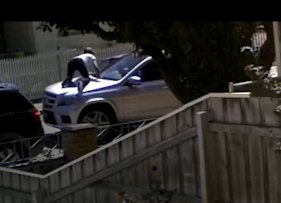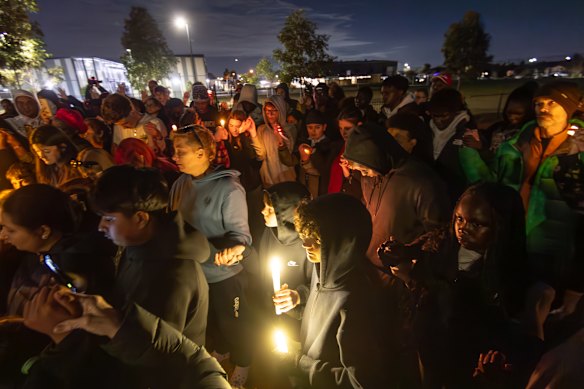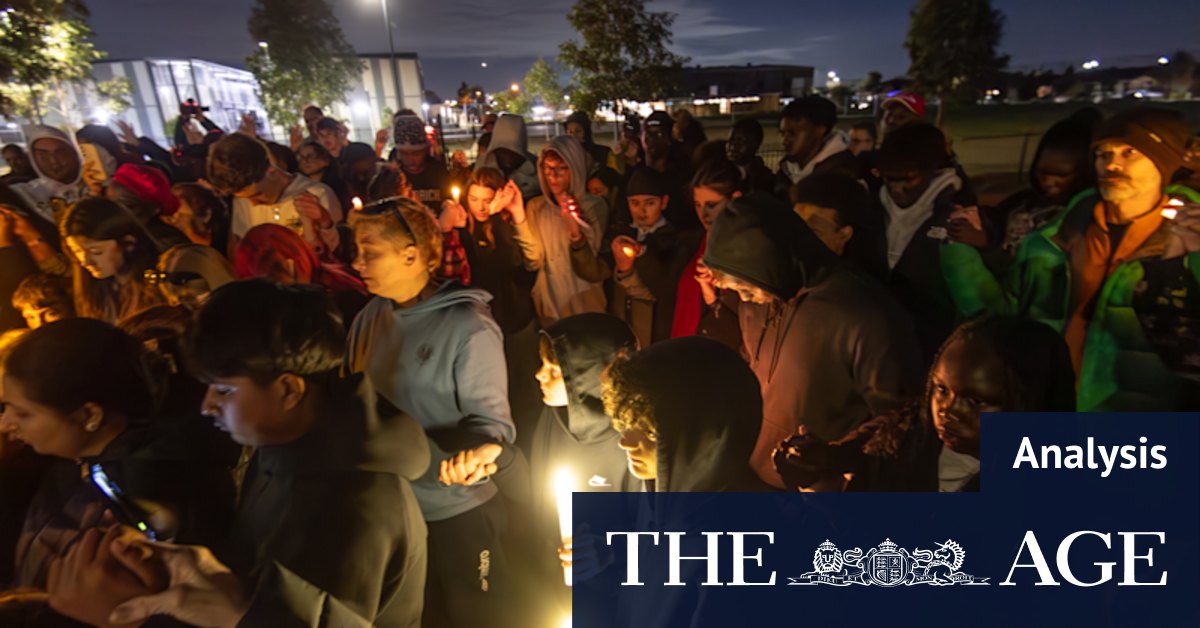A senior police officer told me: “When I drive into Melbourne, it feels like Gotham City, it is so grim. I used to be proud of the city. Now I tell friends overseas, ‘Don’t come here’.”
Marriner says we have resuscitated Melbourne before and can do it again. He wants a campaign similar to Postcode 3000 – a 1992 initiative after a property crash – to revitalise the city.
Melbourne’s problems are not restricted to the CBD. We are facing a crisis of confidence, and we have no serious plan to dig our way out.
This is frog-in-a-pot stuff. The water is getting hotter, and we refuse to jump.
In 10 days, there have been high-speed chases involving young offenders, home invasions, a former AFL coach stabbed, carjackings with kids still in the car, assaults on retail workers, record shoplifting rates and Victoria leading the way in car thefts.
Loading
Then, there is the murder of two youths, aged 12 and 15, set upon by a gang using machetes. Today, we shake our heads. A decade ago, we would have been marching in the streets demanding action.
The fundamental question is: What makes Victoria so different? Why have we become more violent and more fearful? Why do we need signs in shops to remind people not to be bullying bastards?
At every point, we give ground and at every point we take the easiest option.
A prominent king’s counsel, someone wedded to the rule of law, told me the system is no longer fit for purpose, and we need to trade some civil liberties for public safety.
Loading
In 2017, Melbourne was considered the world’s most liveable city. Crime rates were dropping, the place was thriving and there was a general feeling of optimism. In 2020, the COVID-19 pandemic made us the most locked-down city, and like all good citizens, we did what we were told.
And in the process, we have done untold damage to a generation. Kids were home-schooled and students whose parents were not equipped to educate them were left behind.
Likes became more important than lessons, and social media took over from social conventions.
We have always been an aspirational community. Work hard, no matter your background, and someone will give you a chance. Now we have a violent minority that feel the only way to achieve is to post their crimes online and join a gang.
Before COVID-19, home invasions were headline news, carjackings a rarity and there were no tobacco shop fire bombings.

A carjacking with a baby on board.
Between 2019 and 2025, the annual rate of criminal offences has jumped by more than 100,000, and homicide-related offences from 161 to 221. And there are thousands of crimes that are not reported because victims have lost faith in the judicial system.
About a week ago, two boys coming home from basketball were murdered in a premeditated attack. Not in a lawless African state or an American ghetto but Melbourne. Chol Achiek 12, and Dau Akueng, 15, were stabbed near Melton. This was not a panicked knife strike in a brawl.
Elbino Akueng, the father of Dau, made a powerful plea on behalf of his family and community.
“In the last month, we have buried four kids, similar incidents keep happening, but there’s no answer from police … I protect people where I work, but no one protects my family at home,” he said.
The truth is, Mr Akueng, they have tried.
In 2013, police agreed to pay substantial compensation to six men of African descent after claims they were being stopped and searched by local officers based on racial profiling.
Of the 25 boys and young men stabbed to death in Victoria since 2020, about half are of African descent. We need more searches, not less.
The critics say random searches concentrate on marginalised groups, but it is the marginalised who are overwhelmingly the victims. We are killing them with kindness.
Loading
In December 2019, Jack Beasley, 17, was stabbed to death in Surfers Paradise. His parents, Brett and Belinda, lobbied councils and governments for real reform. It became known as Jack’s Law – the power for police to randomly use metal detectors to look for weapons.
It has been adopted in New South Wales, Western Australia, Tasmania and Queensland. But not here.
In fairness, there are academic experts who question its long-term efficiency, with one saying: “Tough-on-crime solutions might lead to a short-term reduction in crime.” Isn’t that a good thing?
One suggests tough measures divert attention from meaningful change. Can’t we have both? And where is the meaningful change?
Meanwhile, people are scared to park their cars in their own driveways.
The other day, I was driving along a suburban street approaching a red light when a man in his 20s walked in front of me. We have all seen it. Someone so entitled they demand the driver stop or alter direction, for the rules don’t apply to them.
There was no interaction between us. Until he returned and, without speaking, ripped off the rear wiper mechanism, then punched the car hard enough to leave a dent.
It was no big deal, I was annoyed, not frightened. I later learned he continued to walk and did the same to another car. This time, the learner driver was a teenager sitting next to her father.
It was just about her first experience behind the wheel, and it was being attacked by a stranger. Big crimes might make the news, but small crimes can be life-altering.

A candlelight vigil for Chol Achiek and Dau Akueng, who were stabbed to death in Cobblebank.Credit: Justin McManus
We have come to a fork in the road. We can continue down the same path or change direction. We can accept a life that is getting a little bit worse year by year or say no more.
There are answers, if we can be bothered asking the right questions.
Let’s start with shoplifting.
Every major retailer reports Melbourne is the shoplifting capital of Australia, with hundreds of unprovoked attacks on retail workers.
Loading
A Coles spokesperson told The Australian Financial Review its supermarkets had “unacceptable levels of theft, abuse and threatening behaviours – particularly in Victoria, where we see the highest proportion of organised retail crime by individuals who pay no attention to the law”.
Yet when Bunnings installed facial recognition cameras in 63 stores in Victoria and NSW, the privacy commission ordered them to stop. To recap: a privately run retailer wants to install cameras to stop violent shoplifters and protect its staff. It has no interest in watching me look at tools I could never use and eat a sausage on the way out.
Bunnings is considering closing some stores because of shoplifting. In San Francisco, most department stores have shut because of organised stealing.
CCTV systems are there to record evidence of a crime. A proactive system is designed to stop a crime.
When we refuse to act, criminals get bolder and more violent. Crooks commit crimes because they can. Get caught shoplifting, just punch the staff in the face and walk out.
Is the use of facial recognition draconian? Not in Britain.
The UK government is spending $100 million on face-recognition systems to combat violent shoplifting.
The retail systems will have access to the police database images of known offenders.
Under Project Pegasus, when a serial shoplifter is caught on camera entering a shop, mall or retail centre, an alarm pings, alerting security guards who approach the offender.
Loading
“Suspects are told they are not welcome and are under surveillance. In about 90 per cent of the cases, the offender leaves before committing crimes,” says former deputy commissioner Ross Guenther who travelled to Britain to study the system.
It could also be used to move on individual gang members who enter shopping centres before they mass for a brawl.
Young people push boundaries. If we want change, good people must push back or cower in the shadows waiting to be the next victim.
Start the day with a summary of the day’s most important and interesting stories, analysis and insights. Sign up for our Morning Edition newsletter.

